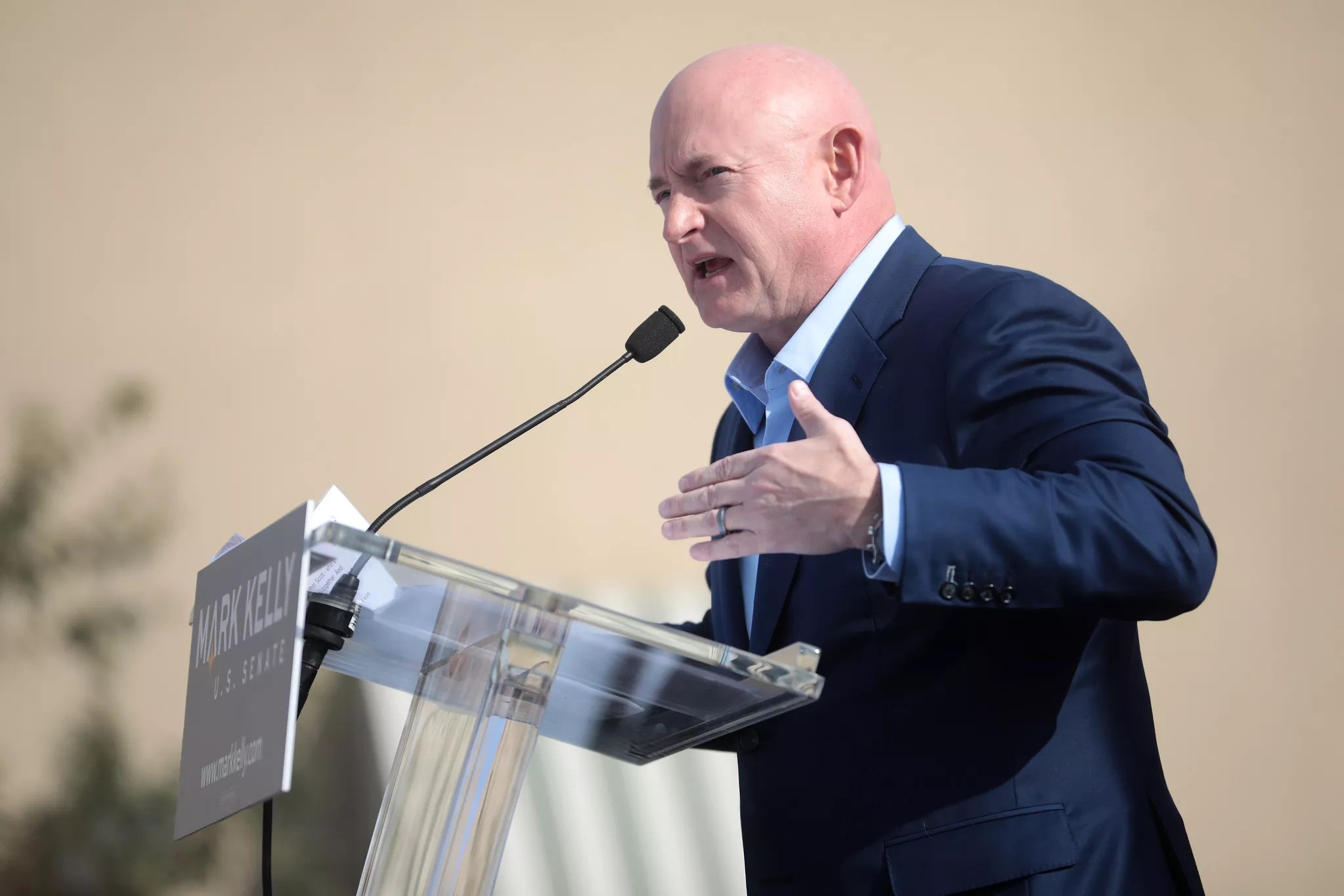
Gage Skidmore/CC BY-SA 2.0/Flickr

Audio By Carbonatix
When he hasn’t been voicing concerns over U.S. airstrikes on Iran, Arizona Sen. Mark Kelly has been focused on different kind of global threat – one coming from outer space.
On Wednesday, Kelly will introduce a Senate resolution designating June 30 as Asteroid Day, aiming to boost public awareness of space science and planetary defense from near-Earth objects, or NEOs.
The resolution calls asteroids both a threat and a key resource for space exploration. It also spotlights the Association of Space Explorers, an international organization of astronauts and cosmonauts advocating for increased awareness of NEOs through the International Asteroid Warning Network and the Space Missions Planning Advisory Group.
Kelly, a retired astronaut and Navy captain with four Space Shuttle missions under his belt, said in a media release that increasing science and space knowledge is crucial.
“Asteroid Day is more than just a reminder about why planetary defense matters, it’s an opportunity to ignite curiosity and inspire the next generation of scientists, engineers and explorers,” he stated.
His resolution marks the 10th anniversary of Asteroid Day, an effort first celebrated in 2015 by Kelly and astronomers worldwide to highlight the risk of the threat of NEOs. The spur for a dedicated worldwide day of recognition was the Eiffel Tower-sized Chelyabinsk asteroid that exploded over Russia in 2013 – “releasing as much energy as 30 atomic bombs,” Kelly’s resolution reads, “and seriously injuring 1,491 people.” If you were on the internet in that era, you could scarcely miss the videos of the spectacular/apocalyptic event captured on Russians’ dash cameras. No space agency detected it before it streaked across the sky.
Now held every June 30, Asteroid Day commemorates the 1908 Tunguska event, when an asteroid blast leveled thousands of acres of Siberian forest. Asteroid Day involves events taking place worldwide – such as Arizona locations like Flagstaff’s Lowell Observatory and Winslow’s Meteor Crater – including expert panels, science briefings and astronomy activities.
Kelly’s resolution may have landed at the perfect time. Earlier this week, a recent audit of NASA’s Planetary Defense Coordination Office found that the entity is understaffed and lacks the governance structure, long-term strategy and resources needed to track, analyze and potentially deflect near-Earth objects.
Rusty Schweickart, a fellow retired astronaut and Asteroid Day co-founder, said Kelly’s resolution helps bring attention to an important issue.
“Kelly’s unwavering commitment to science and planetary defense across all levels of government, from local to national and international, is crucial for keeping America at the forefront of science and technology,” Schweickart stated in the announcement.
You can read the full text of Kelly’s resolution here: